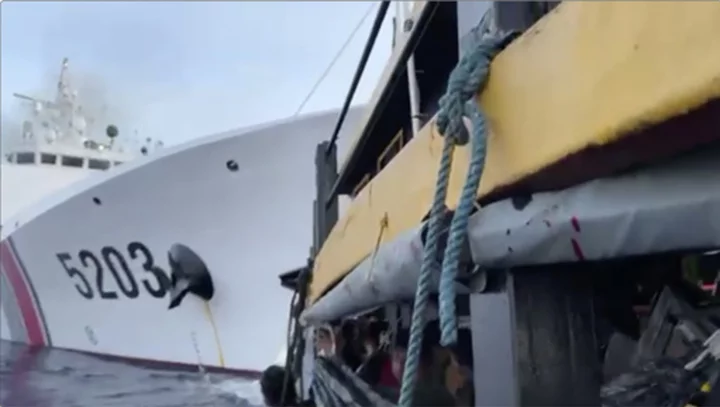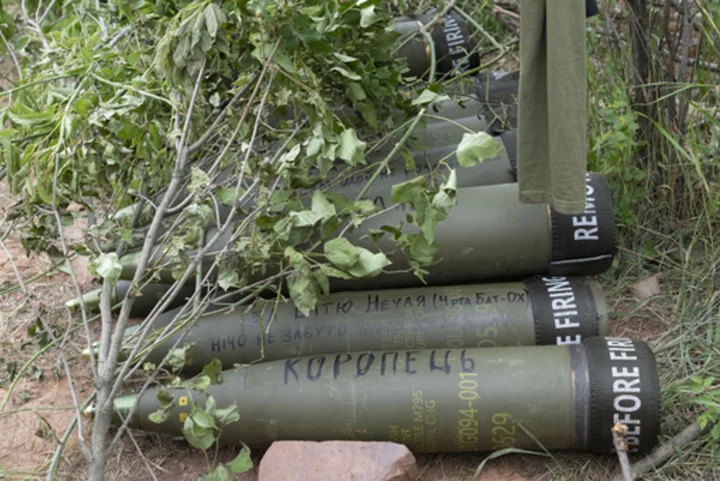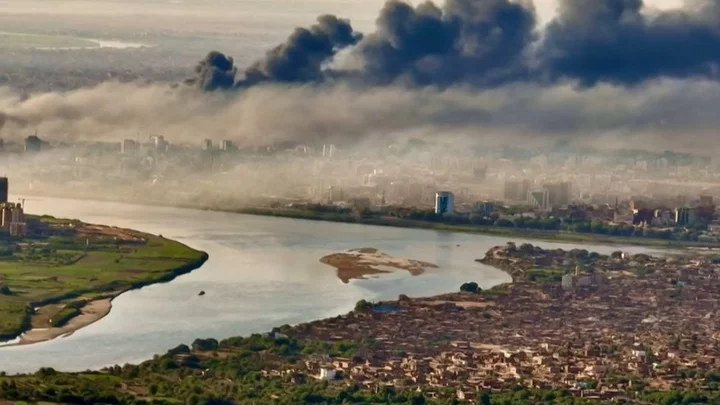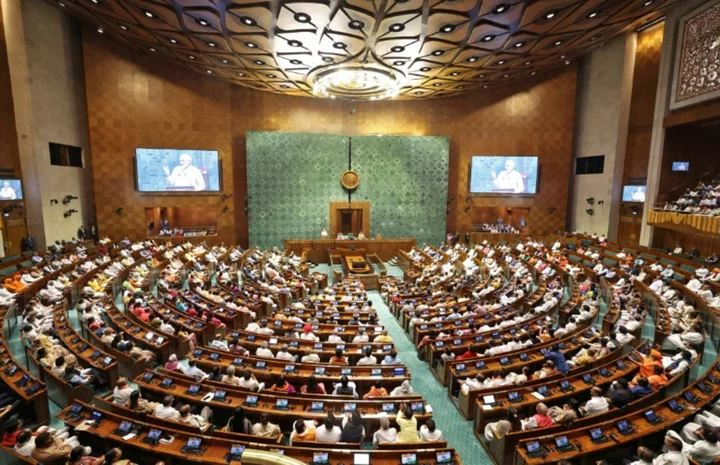MANILA, Philippines (AP) — A Chinese coast guard ship and an accompanying vessel rammed a Philippine coast guard ship and a military-run supply boat Sunday off a contested shoal, Philippine officials said, in an encounter that heightened fears of an armed conflict in the disputed South China Sea.
A top Philippine security official told The Associated Press there were no injuries among the Filipino crew members and the damage to both vessels was being assessed.
The official said that the two incidents near Second Thomas Shoal, where China has repeatedly tried to isolate a Philippine marine outpost, could have been worse if the vessels were not able to maneuver rapidly away from the Chinese ships. The official spoke on condition of anonymity due to a lack of authority to publicly discuss the matter.
China's sweeping territorial claims in the South China Sea, including over islands closer to the Philippine shore, have raised tensions and brought the United States, a longtime treaty ally of the Philippines, into the fray.
The U.S. ambassador to Manila, MaryKay Carlson, wrote on the X social media platform that “the United States condemns the PRC’s latest disruption of a legal Philippine resupply mission to Ayungin shoal, putting the lives of Filipino service members at risk.”
She used the initials for China’s formal name, the People’s Republic of China, and the name the Philippines uses for Second Thomas Shoal. She added that Washington was standing with its allies to help protect Philippine sovereignty and to support a free and open Indo-Pacific region.
State Department spokesperson Matthew Miller also reaffirmed that the 1951 U.S.-Philippines Mutual Defense Treaty extended to attacks on Philippine forces and vessels in the South China Sea.
The Chinese coast guard said the Philippine vessels “trespassed” into what it said were Chinese waters “without authorization” despite repeated radio warnings, prompting its ships to stop them. It blamed the Philippine vessels for causing the collisions.
"The Philippine side’s behavior seriously violates the international rules on avoiding collisions at sea and threatens the navigation safety of our vessels,” the Chinese coast guard said in a statement posted on its website.
The Chinese authorities said that they were stopping Philippines ships that carried “illegal construction” materials.
A Philippine government task force dealing with the South China Sea said the collisions occurred as two Philippine supply boats escorted by two Philippine coast guard ships were heading to deliver food and other supplies to the military outpost that has been under a Chinese blockade.
The actions of the Chinese ships were “in utter blatant disregard of the United Nations Charter, the United Nations Convention on the Law of the Sea” and international regulations that aim to prevent sea collisions, it said.
Near-collisions have happened frequently as Philippine vessels deliver supplies to Filipino marines and sailors stationed on the disputed shoal. But this was the first time Philippine officials have reported their vessels being hit by China’s ships.
In the past, Chinese officials have played down claims that the Chinese vessels enforcing Beijing's territorial claims were in fact paramilitary ships disguised as fishing boats.
Despite the Chinese efforts, one of the two boats managed to maneuver and deliver supplies to the small contingent stationed on board a marooned warship, the BRP Sierra Madre, the task force said.
The South China Sea is one of the world’s busiest trade routes. The disputes involve China, the Philippines, Vietnam, Malaysia, Taiwan and Brunei, and are regarded as a flashpoint in a delicate fault line in U.S.-China rivalry in the region.
In early August, a Chinese coast guard ship used a water cannon against one of two Philippine supply boats to prevent it from approaching Second Thomas Shoal. It outraged President Ferdinand Marcos Jr. and prompted the Department of Foreign Affairs in Manila to summon the Chinese ambassador to convey a strongly worded protest.
At the time, the Chinese Foreign Ministry accused Washington of “threatening China” by raising the possibility of activating the U.S.-Philippine mutual defense treaty. Beijing has repeatedly warned the U.S. not to meddle in regional territorial disputes.
The European Union ambassador to Manila, Luc Veron, said the incidents, “their repetition and intensification, are dangerous and very disturbing.” The EU, he added, joins the Philippines “in its call for the full observance of international law in the South China Sea.”
A 2016 arbitration ruling set up under the U.N. Convention on the Law of the Sea invalidated Beijing’s claims on historical grounds to virtually the entire South China Sea. China refused to participate in the arbitration sought by the Philippines, rejects the decision and continues to defy it.
___
Associated Press writer Huizhong Wu in Bangkok contributed to this report.









